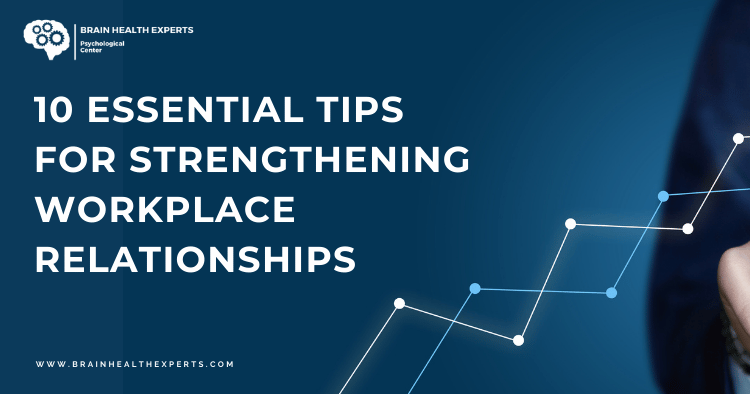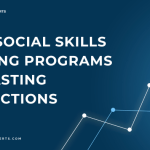Table of Contents
Tip 1: Communicate Openly
Effective communication is the foundation of any strong relationship. Make an effort to share your thoughts and feelings openly.
Tip 2: Show Appreciation
Recognizing and appreciating the efforts of your colleagues fosters goodwill and strengthens bonds.
Tip 3: Be Respectful
Respect for one another is crucial in a workplace. It encourages a positive environment.
Tip 4: Listen Actively
Active listening helps in understanding others better and shows that you value their opinions.
Tip 5: Collaborate
Working together on projects not only enhances productivity but also builds relationships based on teamwork.
Tip 6: Manage Conflicts
Address conflicts promptly and constructively to prevent them from escalating.
Tip 7: Build Trust
Trust is vital in any relationship. Be honest and reliable to help establish trust with your colleagues.
Tip 8: Support Each Other
Be there for your colleagues, whether it’s assisting with work or providing emotional support.
Tip 9: Be Empathetic
Try to understand things from others’ perspectives to foster a compassionate workplace.
Tip 10: Celebrate Success
Take the time to celebrate achievements, both big and small, to reinforce a sense of community.
The Importance of Workplace Relationships
Workplace relationships are the backbone of a productive and healthy work environment. Strong relationships among colleagues contribute to improved job satisfaction, better teamwork, and enhanced productivity. According to a 2023 report by the American Psychological Association, organizations that prioritize interpersonal relationships see a 30% increase in employee engagement and a notable decrease in turnover rates. Building solid workplace relationships not only benefits individual employees but also fosters a collaborative culture that can drive organizational success.
1. Communicate Effectively
Effective communication is key to any successful relationship. In the workplace, this means being clear and concise in your messages, whether they are verbal or written. Here are some tips for enhancing communication:
- Be Clear and Direct: Avoid jargon and ambiguous language to minimize misunderstandings.
- Use Multiple Channels: Utilize emails, face-to-face conversations, and collaborative tools like Slack or Microsoft Teams to reach your colleagues.
- Check In Regularly: Regular updates can prevent information overload and keep everyone on the same page.
Example: Instead of saying, “Can you handle that?” specify the task: “Can you prepare the project report by Friday?”
2. Foster Team Collaboration
Encouraging collaboration among team members can significantly strengthen workplace relationships. Here’s how to promote teamwork:
- Encourage Open Discussions: Create a culture where everyone feels comfortable sharing ideas.
- Utilize Collaborative Tools: Platforms like Google Workspace and Trello can help streamline project management and encourage shared contributions.
- Celebrate Team Successes: Acknowledge team accomplishments to build a sense of camaraderie.
Example: Organize brainstorming sessions where team members can contribute ideas without judgment.
3. Show Appreciation and Recognition
Recognition and appreciation can go a long way in strengthening relationships. Here’s how to effectively show appreciation:
- Express Gratitude: A simple “thank you” can boost morale and foster goodwill.
- Implement Recognition Programs: Create initiatives that recognize employee efforts, such as “Employee of the Month.”
- Personalize Your Appreciation: Tailor your recognition to individual preferences, whether a public acknowledgment or a private note.
Example: Send a handwritten note to a team member who went above and beyond to help with a project.
4. Develop Emotional Intelligence
Emotional intelligence (EI) is the ability to recognize and manage your emotions and those of others. Developing EI can significantly enhance workplace relationships:
- Practice Self-Awareness: Understand your emotions and how they affect your behavior.
- Empathize with Others: Put yourself in your colleagues’ shoes to understand their perspectives.
- Manage Conflicts Wisely: Approach conflicts calmly and with a focus on resolution.
Example: If a colleague is upset, take time to listen to their concerns before responding.
5. Be Open to Feedback
Constructive feedback is essential for growth in any relationship. Here’s how to cultivate a feedback-friendly environment:
- Encourage Peer Reviews: Allow team members to offer feedback on each other’s work.
- Provide Specific Examples: When giving feedback, be specific about what can be improved.
- Act on Feedback: Show that you value feedback by implementing changes based on it.
Example: After receiving feedback, arrange a follow-up meeting to discuss how you’ve integrated it into your work.
6. Promote Inclusivity
Creating an inclusive workplace environment is crucial for building strong relationships. Here are some steps to promote inclusivity:
- Value Diverse Perspectives: Encourage input from all team members, regardless of their background.
- Create Inclusive Policies: Develop policies that support diversity and inclusion in the workplace.
- Celebrate Diversity: Acknowledge cultural events and holidays to foster inclusivity.
Example: Organize a cultural appreciation day where employees can share their heritage through food and activities.
7. Engage in Team-Building Activities
Team-building activities are a fun way to strengthen relationships among employees. Consider these options:
- Workshops: Attend workshops that focus on teamwork and collaboration skills.
- Social Events: Organize regular outings or virtual hangouts to build rapport outside of work.
- Volunteer Together: Participate in community service projects as a team.
Example: Host a monthly trivia night where teams compete for fun prizes.
8. Practice Active Listening
Active listening is a crucial skill for strengthening workplace relationships. Here are ways to improve this skill:
- Give Full Attention: Put away distractions to focus completely on the speaker.
- Reflect Back: Summarize what the other person has said to ensure understanding.
- Ask Open-Ended Questions: Encourage deeper conversations by asking questions that require more than yes or no answers.
Example: When a colleague shares an idea, respond with, “That’s interesting, can you elaborate on that?”
9. Set Boundaries
Healthy relationships require boundaries. Here’s how to establish them in the workplace:
- Communicate Your Limits: Clearly express your availability and what you can handle.
- Respect Others’ Boundaries: Be mindful of your colleagues’ time and personal space.
- Find Work-Life Balance: Ensure that work does not encroach on personal time.
Example: If you prefer to not receive emails after hours, communicate this to your team.
10. Maintain a Positive Attitude
A positive attitude can greatly influence workplace relationships. Here are ways to cultivate positivity:
- Practice Gratitude: Regularly reflect on things you appreciate about your job and colleagues.
- Encourage Positivity: Motivate others through compliments and positive reinforcement.
- Stay Resilient: Focus on solutions rather than problems during challenging times.
Example: Share positive news or accomplishments during team meetings to uplift everyone’s spirits.
FAQs
Q: Why are workplace relationships important?
A: Strong workplace relationships lead to improved communication, increased employee satisfaction, and higher retention rates, ultimately contributing to organizational success.
Q: How can I improve my relationships at work?
A: Focus on effective communication, active listening, and showing appreciation. Engaging in team-building activities can also help foster stronger relationships.
Q: What role does emotional intelligence play in workplace relationships?
A: Emotional intelligence allows individuals to navigate social complexities, empathize with others, and manage their emotions, all of which are crucial for building strong relationships.
Conclusion
Strengthening workplace relationships is vital for a thriving work environment. By communicating effectively, fostering collaboration, and showing appreciation, you can create a positive atmosphere that benefits everyone. Emphasizing emotional intelligence and inclusivity will not only enhance relationships but also contribute to a more engaged and productive workforce. Start implementing these tips today and watch your workplace transform into a more connected and harmonious environment.
For further insights, check out resources from the American Psychological Association and Harvard Business Review on workplace relationships and emotional intelligence.
By following these essential tips, you can create a workplace that not only drives productivity but also nurtures meaningful relationships. Happy connecting!
Sure! Please provide the Markdown content that you would like to convert to HTML.





